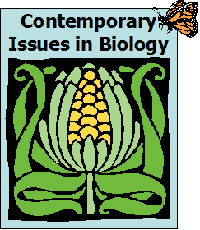
Week 6, Chapter 13 -- Digging Deeper Sample Answer
Course home | Weekly schedule | Announcements | Instructor Info | Desire2Learn | MasteringBiology® | Honor Code | FAQs | HELP!
 |
Week 6, Chapter 13 -- Digging Deeper Sample AnswerCourse home | Weekly schedule | Announcements | Instructor Info | Desire2Learn | MasteringBiology® | Honor Code | FAQs | HELP! |
Sample Digging Deeper Assignment:
Dear Boss:
As you requested, here is my report about my recent travels and efforts to find plants with potential medicinal uses.
I traveled to remote areas of South America, specifically the Andes Mountains. I chose these regions because they are well known for their native medicinal plants that even ancient civilizations had manipulated. Many of these substances are toxic if used in the wrong dosages, which is probably the reason they still have not been introduced into mainstream pharmaceuticals.
I have chosen four very distinct medicinal plants.
A quick PubMed search did not reveal any papers on the efficacy of Cinchona officinalis, although there were two papers explaining how to measure the amount of active alkaloids in the bark of the tree. Likewise, I found only three papers that cited Pilocarpus jaborandi. One was particularly interesting because it reported on research attempting to increase the content of pilocarpine, the active ingredient in jaborandi oil. In contrast, I found 175 papers on Erythroxylum coca, including some on its use as a local anesthetic. (The number of hits on this species makes sense, because this plant is the source of cocaine. It therefore also has some obvious legal baggage associated with it). Curare had more than 300 hits, because it is useful in neurological research (not necessarily for its medicinal properties.) I therefore think that cinchona bark and jaborandi oil might be the two most promising of the four species I identified.
Should we choose to exploit these species, both the company and the indigenous peoples of these regions will benefit on many different levels. Obviously, our company will profit if we can provide new medicines that will help people around the world feel better. The native economy will also benefit. I feel that the native peoples should be compensated generously for their knowledge, and we should also hire them to collect plant samples since they have such extensive knowledge of the environment. However, as a responsible company, we do not want to devastate the natural ecosystem – we must not collect so much that we completely wipe out the native populations of these plants.
[Notice that this sample does not include links to the sites used to get the information. Your assignment should include that information!]
[Back to Digging Deeper assignment]
[This sample was largely written by Andie Nix Doty, a student who helped test some assignments for this course. Thanks, Andie!]